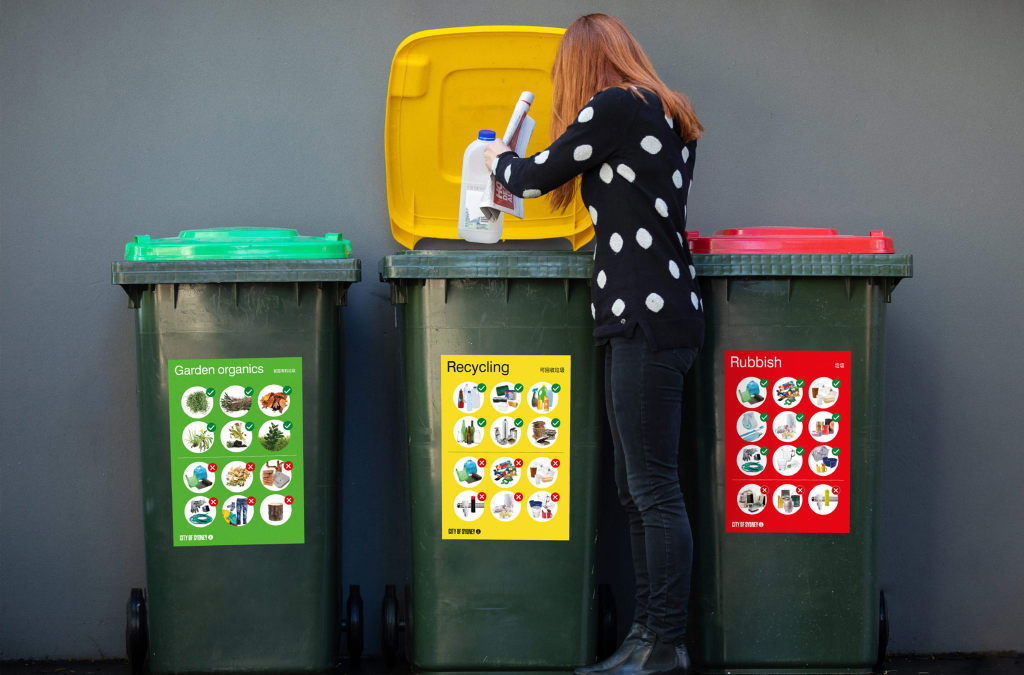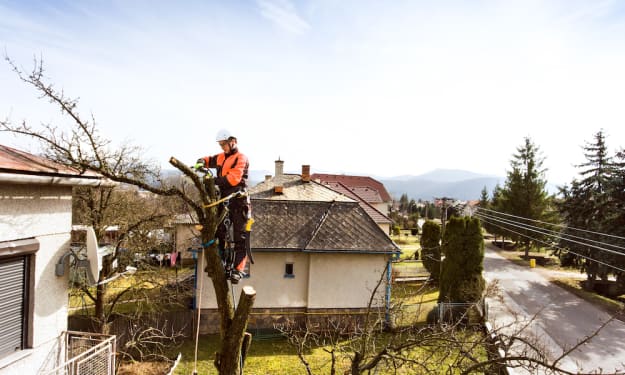What Is Recycling & What to Recycle in Australia
Learn what can and what can't be recycled in your Aussie recycling bins

Rubbish recycling can be relatively easy for most Australian households. But knowing what to and not to recycle and learning to recycle properly can still be confusing for many.
That’s why many residential and commercial facilities rely on rubbish removal services in Sydney to send heaps of junk into recycling facilities.
If you’re looking for helpful methods to recycle your waste properly, read on to discover everything there is to know — from basic recycling how-tos to advanced tips and tricks.
For official facts and reports, read more about the Australian recycling sector on their official website.
Three Fundamental Rules of Recycling
Let’s begin at the core of recycling and understand that some materials make a positive or negative environmental impact when recycled.
Kurt, founder of Kurt’s Rubbish Removal in Sydney has stated that it’s crucial to remember the following three fundamental rules the next time you head out and recycle your rubbish:
- Always recycle paper, cardboard, bottles, and tin cans
- Avoid adding food and beverages into the recycling container
- Don’t include bagged recyclables and loose plastic bags
What to Recycle?
Despite the sustainable developments in waste production and packaging, we still cannot recycle all the rubbish, especially if you’re sending them to recycling plants.
That said, Paul, founder of Paul’s Rubbish Removal in Sydney, has been kind enough to put together and provide us with the following comprehensive list of what can and what can’t be recycled in your recycling bins.
Without further ado, let's dive into it!
Accepted in Recycling Bins
Paper & Cardboard
It’s a no-brainer that paper and magazines are excellent recycling materials. If you have wet newspapers, you can also compost them to use as a homemade fertiliser.
Remember to flatten all paperboard and boxes before throwing them in the recycling bin.
Plastic/Glass Bottles & Containers
If you have several curbside recycling bins, we recommend separating plastic and glass bottles. But if you’re interested in recycling plastics at home, it’s best to organise the jars, bottles, and jugs from each other.
You may need to check on your Sydney local council policies for glass bottles since some recycling rules vary across suburbs. Some may offer drop-off locations while other communities implement curbside pickup services for glass recyclables.
Food & Beverage Containers
Always recycle food cans, aluminium cans, and empty steel containers.
If you have aerosol cans, you can also choose to recycle them, but make sure to eliminate the plastic lid before throwing it in the green bin.
You can also recycle food cartons and beverage boxes, but you may also need to check your local recycling guidelines similar to glass bottles. Nevertheless, it’s best to empty all containers before throwing them in the bin to avoid leachates and microbial growth.
Not Accepted in Recycling Bins
Avoid Bagged Recyclables
Prevent putting recyclables in a bag and throwing them in the bin. All recyclables should be kept loose in recycling bins.
Besides, you can upcycle the bags by emptying them in the bin and reuse it as a household trash bag, among other ideas.
Plastic Bags & Wraps
Most curbside bin services do not accept plastic bags as they can damage equipment and expose workers to potential risks. Besides, putting rubbish in bags and dumping them in green bins is bad since not all materials inside the bag are recyclable.
Moreover, we recommend reusing your bubble wraps, plastic wraps, and freezer bags instead of putting them in the bin. That’s because not all recycling plants process these materials.
Composite & Flexible Packaging
Chip bags and tetra packs should stay away from recycling bins as they have multiple layers of different materials. Some of these materials aren’t recyclable, causing them to be much more of a risk than a benefit in the bin.
Plastic or Wax-coated Cups
Recycling facilities do not accept cups with plastic film or wax coatings. We recommend having a reusable cup instead for a more sustainable food container.
Polystyrene Foam & Plastic
Parcel foam, also known as packing peanuts (Polystyrene), and plastic take-out containers use non-recyclable materials and should be kept away from recycling bins.
You may also want to check with your local shipping outlet in Sydney, as some might accept Polystyrene foam for reuse.
Other Things to Avoid in Recycling Bins
Biohazardous Waste
Syringes, medical waste, and other biohazardous waste can be extremely dangerous when put into recycling bins as they could pose severe infection and health risks to workers.
We highly advise disposing of medical waste in safe and hazard-rated containers or asking a professional rubbish removal team to get rid of them for you.
Tangling Materials
Always keep ropes, wires, Christmas lights, chains, and other tangling rubbish away from recycling bins.
Those materials can wrap around shredders, damage recycling equipment, and can pose safety risks to workers.
Household materials
We recommend against putting textiles, furniture, and other household items in the recycling bin. Not only are most of them too big to fit in recycling equipment, but it’s best to donate them to your local charity or trash them for good.
Used Diapers
Your pet or baby’s diapers should stay away from the recycling bin as they turn the useful materials into unwanted trash. You can instead throw used diapers in compost or throw them in the trash.
Garage Rubbish
Scrap metal, used tires, and unwanted car parts can pose safety risks if left in trash bins or curbside recycling containers.
We recommend checking your local collection program to know if they accept garage waste or leave them to a scrap recycler in your place.
Debunking Popular Recycling Myths
Knowing the common recycling myths and debunking them will help you ensure that your rubbish goes a long way through recycling and reusing.
Recycling icon on a container means it is recyclable
While this is true in some cases, it’s still best to check on your local council’s guidelines to determine which materials are recyclable and which ones are not.
That’s because not all plastics with recycling icons can be recycled and will only depend on whether the recycling facility accepts them or not.
Recyclables should be squeaky-clean
The recycling bin must be clean. However, it’s still a rubbish bin, so it doesn’t have to be spotless.
We suggest maintaining a habit of cleaning and drying recyclables before storing them in the bin. That means it should be free of food and beverage leftovers to avoid contamination.
Non-recyclable rubbish gets sorted into recyclables
Another fairly common myth is that non-recyclable materials thrown away are still sorted in the recycling process.
In reality, municipal waste systems and rubbish removal services never mix recyclable and non-recyclable items. Even recyclables that are inside plastic bags will never be recycled entirely.
We always recommend segregating all household and commercial rubbish and keeping them loose in the bins. Most facilities accept common recyclables such as paper, cardboard, cans, and bottles (plastic and glass).
We can recycle all types of glassware
Depending on your local council’s recycling policies, you can or can not recycle glass bottles, jars, or other glassware. Some municipalities in Sydney provide a separate bin for broken and unwanted glass.
Check your local community’s recycling policies or donate it to your local glass manufacturing and recycling facilities.
Aerosol cans are recyclable
Depending on your local council and jurisdiction, most recycling facilities accept empty spray cans.
If the can still holds pressure, it could threaten the facility since it could burst and catch fire. Otherwise, the pressure could propel it into the air and act as a projectile.
Summary
Knowing the basics and comprehensive information regarding recycling will go a long way in ensuring a clean and sustainable community.
Not only will this help educate people on reliable recycling habits, but knowing what to avoid when recycling helps keep a safe and sanitary household for you and your family.
We understand that all the information laid out above can be too much to wrap around your head. So when it comes to rubbish removal in Sydney, partnering with a reliable rubbish removal partner surely goes a long way.
About the Creator
Jennifer Lee
Jennifer is a freelance journalist and writer. She has contributed to a wide variety of publications such as Forbes, Lifehack, and Entrepreneur Asia Pacific. Her areas of interest range from business, home and finance.






Comments
There are no comments for this story
Be the first to respond and start the conversation.